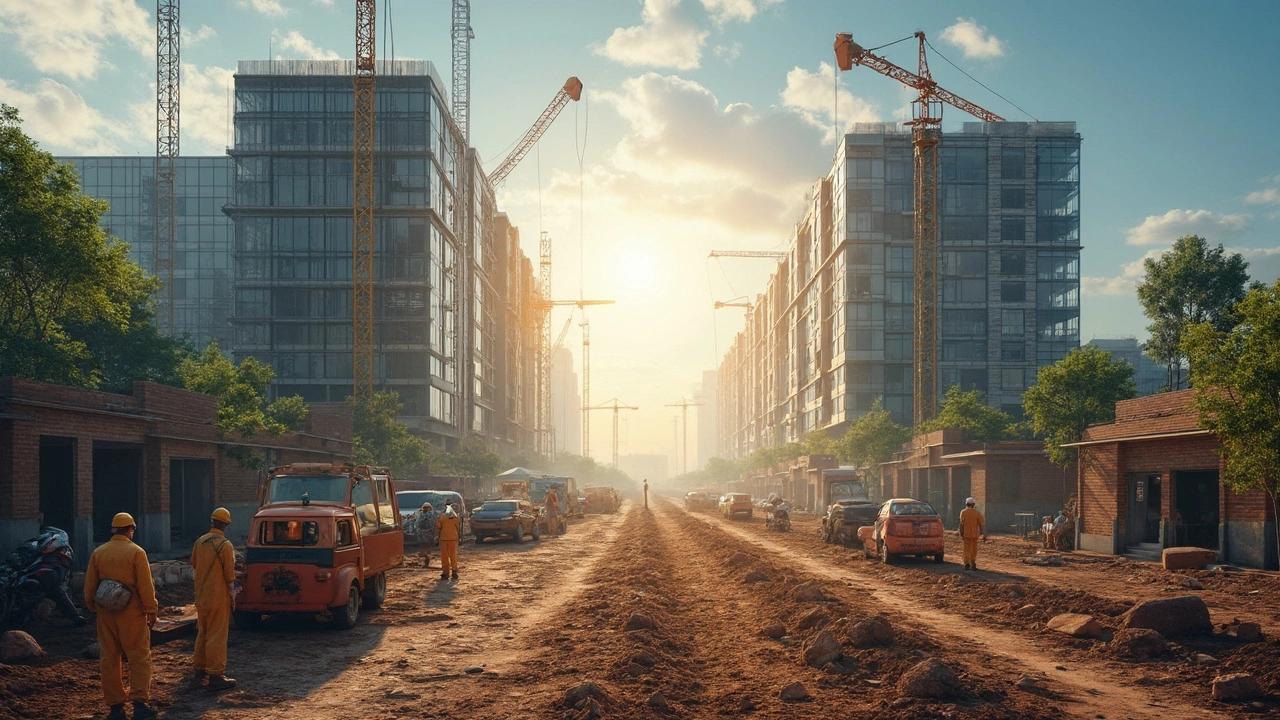Construction Project: What You Need to Know About Planning, Costs, and Common Mistakes
When you start a construction project, a planned effort to build or renovate a structure, from a single home to a commercial building. Also known as a building project, it’s not just about laying bricks—it’s about managing timelines, money, permits, and people. Too many people think a construction project is just picking materials and hiring a crew. But the real work starts before the first shovel hits the ground.
A commercial construction, building projects meant for business use like offices, stores, or warehouses is a different beast than a residential construction, projects focused on homes, apartments, or housing units. Commercial jobs have stricter codes, bigger teams, and longer approval times. Residential projects? They’re often faster but more personal—your home, your rules, your budget. Both need a solid general contractor, the person who manages every part of the build, from permits to subcontractors. Skip this role, and you risk delays, poor work, or even legal trouble.
One of the biggest mistakes? Ignoring the foundation. A foundation repair, fixing cracks, settling, or structural damage in a building’s base isn’t something you can ignore. Cracks in your basement? That’s not just cosmetic—it’s a warning. And if you’re building new, rushing the foundation or skimping on drainage can lead to mold, uneven floors, or worse. We’ve seen homes built in 2023 with mold already growing inside because the builder didn’t let the concrete dry right. It’s not the homeowner’s fault—it’s a construction project gone wrong from day one.
And don’t assume bigger means better. A 3,000-square-foot house in California costs more than double what it does in Massachusetts—not because materials are pricier, but because labor, permits, and land rules change everything. Same goes for commercial builds: a steel-frame office in Texas won’t cost the same as one in London. The construction project you think is simple? It’s full of hidden variables.
Whether you’re fixing a cracked foundation, adding a second story, or building a new retail space, every project has the same three killers: bad planning, unclear communication, and underestimating time. The posts below break down real cases—why a loft conversion blew past budget, how to pick a contractor who won’t disappear, what Type C construction really means, and why painting a new build too soon can ruin your warranty. No fluff. No theory. Just what actually happens on the ground.
Commercial vs Residential: Which Construction Path Wins?
Thinking about whether commercial or residential construction is better? This article breaks down the real differences, benefits, and headaches of each. You'll see what makes commercial jobs stand out, where residential wins, and how project size, rules, profit, and risks stack up. With clear advice and interesting facts, it helps anyone from hopeful investors to job site pros choose what's right for them. No jargon or sugarcoating—just practical info you can use.
Learn more...